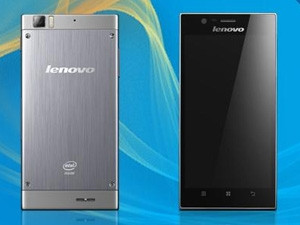
Chinese computing manufacturer Lenovo is focusing its attention on pushing its smartphones in developed markets, after impressive first quarter results in the Asia-Pacific region.
In an interview with the Wall Street Journal (WSJ), Lenovo CEO Yang Yuanqing said the company plans to expand its smartphone sales into the US within the next year. Last year, Lenovo released its smartphones in Vietnam, India, Russia, Indonesia and the Philippines.
Although Lenovo is doing well in the PC market, considering the influx of tablets and other mobile devices, Yuanqing said smartphones are a new opportunity for it to ensure future growth. "As a public company, you always have to consider how to grow."
The PC market has experienced its worst ever year-on-year decline, with a 13.9% drop in worldwide shipments as recorded by the International Data Corporation (IDC). The steep decline was blamed largely on the launch failure of Windows 8, as well as the increase in tablet sales.
Getting ahead
Lenovo announced its fourth fiscal quarter and full-year results last week, and said it achieved record full-year sales of $34 billion, an increase of 15% year-over-year, which will help the company inject more funds into its smartphone expansion plans.
"Not only were we the fastest-growing among all major PC players, with record market share, revenue and profitability, more importantly, our smartphone and tablet businesses saw dramatic growth. Smartphone shipments were 3.7 times greater than last year globally and we are now number two in the China smartphone market," Yuanqing said.
The IDC reflects this, with its latest research showing Lenovo increased its Chinese market share from 4.1% in 2011, to 11% last year.
Smart move
World Wide Worx MD Arthur Goldstuck says entering the smartphone market is the logical step for any computer manufacturer if it wants to keep head above water. "For much of the world's population, a smartphone is the only computer many people will ever use. It would be short-sighted for a computer maker not to embrace mobile."
Goldstuck says it is expected that Lenovo would have a great share of the Chinese market as it is the company's home turf. "Its effectiveness in other markets, however, will almost entirely come down to marketing budget."
Yuanqing is well aware of the challenges Lenovo faces from big brands like Samsung and Apple when it comes to marketing its smartphones. "The market for smartphones is more like the fashion industry. We know the importance of marketing, and we will strengthen that," he told the WSJ.
Goldstuck says Lenovo's premium smartphone, the K900, is a worthy competitor. "It is comparable to phablets like the Samsung Note 2 rather than the standard smartphones. It performs exceptionally well in comparison."
He adds that the absence of expandable storage is, however, a major drawback, as with the HTC One, when compared to the high-end Samsung and Sony smartphones.
While most leading smartphone manufacturers have been using Qualcomm processors to power their devices, Lenovo has opted for Intel chips. But Goldstuck says this will hardly have an impact on people's choice of smartphone. "Generally, markets are concerned with performance rather than components, and the brand of chip on board is not going to be a deciding factor for a consumer."
He says that for app developers, it is equally irrelevant. "They tend to develop for an operating system and the power of a device rather than who makes that power possible. The nature of the battery should make more of a difference to a developer, but even that is ignored."
Goldstuck says Lenovo's smartphone success in SA does not depend on its devices. "The Lenovo phones will catch on if enough marketing is thrown at them and the networks decide to carry, support and push the phone."
Share